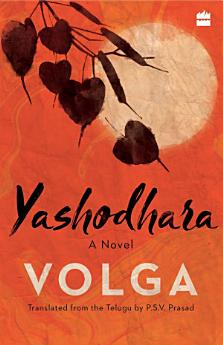关于此电子书
The story of Siddhartha, the future Gautama Buddha, leaving the palace to start his spiritual journey and attain enlightenment has been told innumerable times over the centuries. And yet, have we never wondered why his young wife, Yashodhara, still recovering from the birth of their son nine days ago, sleeps soundly as her husband, the over-protected prince departs, leaving behind his family and wealth and kingdom?In Yashodhara, the gaps of history are imagined with fullness and fierceness: Who was the young girl and what shaped her worldview? When she married Siddhartha at the age of sixteen, did she know her conjugal life would soon change drastically? The Yashodhara we meet in Volga's feminist novel is quick-witted, compassionate and wants to pave a way for women to partake in spiritual learning as equals of men.
评分和评价
作者简介
VOLGA is a writer, critic, translator and poet, who has been a forerunner in introducing a feminist perspective into the literary-political discourse of the Telugu-speaking states. One of the most significant figures in Telugu literature today, her works opened the floodgates for a host of women writers to articulate the doubts and confusions they experienced as women. Her novel Sveccha (Freedom) marks a watershed in women's writing in Telugu and is now being published in all Indian languages by the National Book Trust of India. Her other works include the short-story collection Rajakiya Kathalu (Political Stories), that looks at the oppression of and control on a woman's body; Maaku Godalu Levu (We Have No Walls), the first volume in feminist philosophy in Telugu, which she edited; and an anthology of feminist poems, Neeli Meghalu (Dark Clouds), also one she edited. She co-authored Saramsam, which documents the anti-arrack struggle, and Mahilavaranam (Womanscape), a detailed collective biography of important Telugu women of the twentieth century. With works like Atadu Ame Manam (He–She–Us) and Sahita (Inclusion), she has contributed richly to feminist literary criticism. Volga has translated several important texts into Telugu, such as Agnes Smedley's autobiographical novel, Daughter of Earth, as Bhumi Putrika. She has also written screenplays for Telugu films, composed lyrics for dance ballets like War and Peace, and represented India in women's conferences in China and the United States.She has received numerous awards and honours, including the Sahitya Akademi Award for her short-story volume, Vimukta (published in translation as The Liberation of Sita), the South Asia Ladli Media and Advertising Award for Gender Sensitivity 2015–2016, and an honorary doctorate from Sri Padmavati Women's University.Volga lives in Hyderabad.





